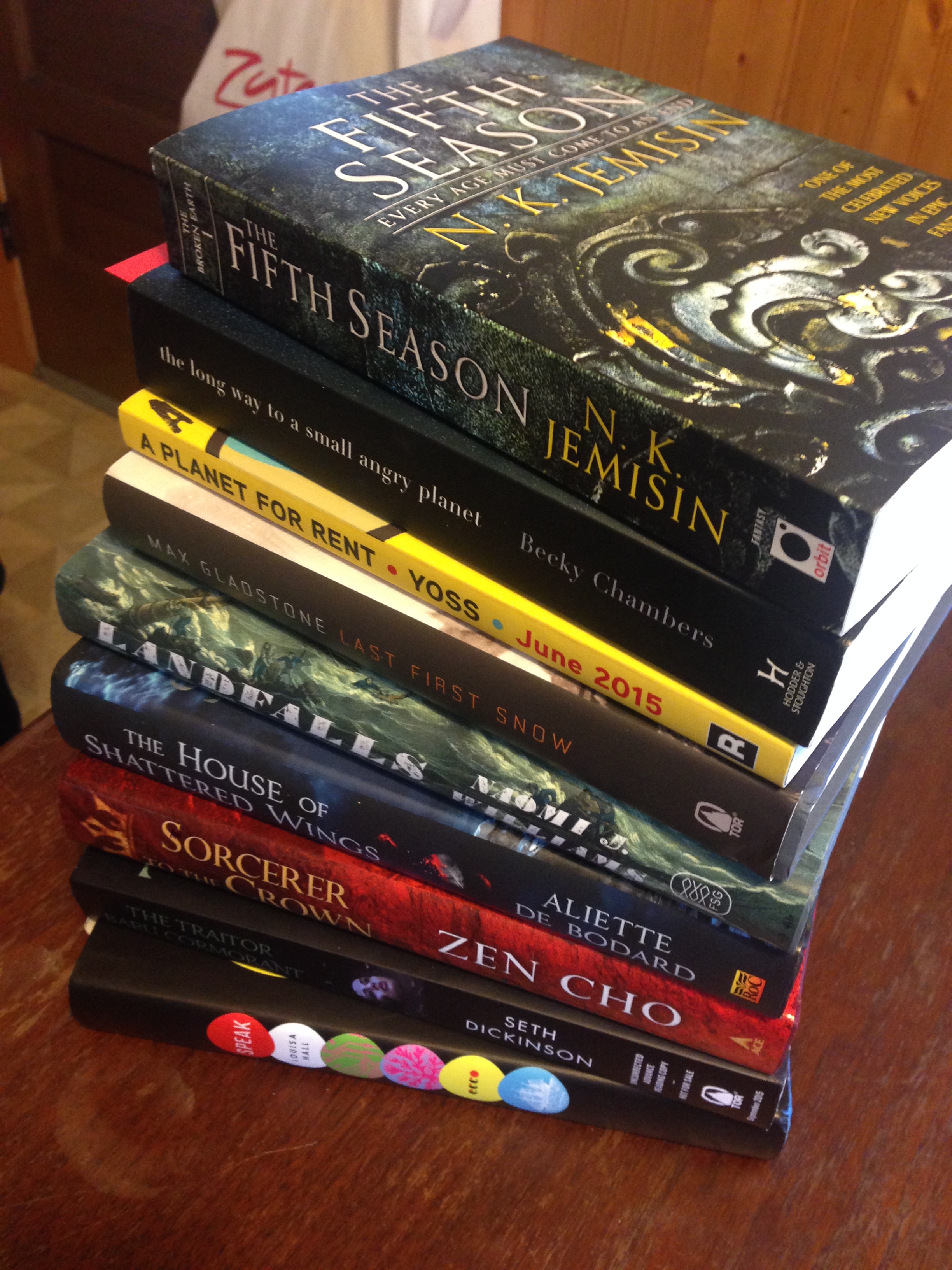 It's been a while since I've done one of these posts. I've had a number of really cool looking books show up in the last month, and it's turned my to-read list into something really spectacular.
It's been a while since I've done one of these posts. I've had a number of really cool looking books show up in the last month, and it's turned my to-read list into something really spectacular.
The House of Shattered Wings, Aliette de Bodard
In the late twentieth century, the streets of Paris are lined with haunted ruins, the aftermath of a Great War between arcane powers. The Grand Magasins have been reduced to piles of debris, Notre-Dame is a burnt-out shell, and the Seine has turned black with ashes and rubble and the remnants of the spells that tore the city apart. But those that survived still retain their irrepressible appetite for novelty and distraction, and The Great Houses still vie for dominion over France’s once grand capital.
Once the most powerful and formidable, House Silverspires now lies in disarray. Its magic is ailing; its founder, Morningstar, has been missing for decades; and now something from the shadows stalks its people inside their very own walls.
Within the House, three very different people must come together: a naive but powerful Fallen angel; an alchemist with a self-destructive addiction; and a resentful young man wielding spells of unknown origin. They may be Silverspires’ salvation—or the architects of its last, irreversible fall. And if Silverspires falls, so may the city itself.
I've really enjoyed de Bodard's short fiction in the past, and her debut novel looks like it's an astonishingly good fantasy. I haven't started it yet, but I've seen people whose judgement I trust really enjoy it, and I'm looking forward to this one.
The Long Way To A Small Angry Planet, Becky Chambers
When Rosemary Harper joins the crew of the Wayfarer, she isn't expecting much. The patched-up ship has seen better days, but it offers her everything she could possibly want: a spot to call home, a chance to explore the far-off corners of the galaxy, and some distance from her past.
And nothing could be further from what she's known than the crew of the Wayfarer.
From Sissix, the exotic reptilian pilot, to Kizzy and Jenks, the chatty engineers who keep the ship running, to the noble captain Ashby, life aboard is chaotic and crazy—exactly what Rosemary wants. That is until the crew is offered the job of a lifetime tunneling wormholes through space to a distant planet. Sure, they'll earn enough money to live comfortably for years, but risking her life wasn't part of the job description.
The journey through the galaxy is full of excitement, adventure, and mishaps for the Wayfarerteam. And along the way, Rosemary comes to realize that a crew is a family, and that family isn't necessarily the worst thing in the universe…as long as you actually like them.
I actually got this in earlier today, and read the first couple of chapters. So far, it's really, really fun - a fun, adventurous space opera, something that I've always enjoyed.
Sorcerer To The Crown, Zen Cho
The Royal Society of Unnatural Philosophers, one of the most respected organizations throughout all of England, has long been tasked with maintaining magic within His Majesty’s lands. But lately, the once proper institute has fallen into disgrace, naming an altogether unsuitable gentleman—a freed slave who doesn’t even have a familiar—as their Sorcerer Royal, and allowing England’s once profuse stores of magic to slowly bleed dry. At least they haven’t stooped so low as to allow women to practice what is obviously a man’s profession…
At his wit’s end, Zacharias Wythe, Sorcerer Royal of the Unnatural Philosophers and eminently proficient magician, ventures to the border of Fairyland to discover why England’s magical stocks are drying up. But when his adventure brings him in contact with a most unusual comrade, a woman with immense power and an unfathomable gift, he sets on a path which will alter the nature of sorcery in all of Britain—and the world at large…
I'm not familiar with Cho's work, but it looks like it's an interesting fantasy novel set in London. Comparisons to the fantastic Suzanne Clarke are always welcome.
The Traitor Baru Cormorant, Seth Dickinson
Baru Cormorant believes any price is worth paying to liberate her people-even her soul.
When the Empire of Masks conquers her island home, overwrites her culture, criminalizes her customs, and murders one of her fathers, Baru vows to swallow her hate, join the Empire's civil service, and claw her way high enough to set her people free.
Sent as an Imperial agent to distant Aurdwynn, another conquered country, Baru discovers it's on the brink of rebellion. Drawn by the intriguing duchess Tain Hu into a circle of seditious dukes, Baru may be able to use her position to help. As she pursues a precarious balance between the rebels and a shadowy cabal within the Empire, she orchestrates a do-or-die gambit with freedom as the prize.
But the cost of winning the long game of saving her people may be far greater than Baru imagines.
I met Dickinson at ReaderCon, and got this book about the same time: I'm intrigued by the plot and the world that he's set out.
The Fifth Season, N.K. Jemisin
A season of endings has begun.
It starts with the great red rift across the heart of the world's sole continent, spewing ash that blots out the sun.
It starts with death, with a murdered son and a missing daughter.
It starts with betrayal, and long dormant wounds rising up to fester.
This is the Stillness, a land long familiar with catastrophe, where the power of the earth is wielded as a weapon. And where there is no mercy.
I loved Jemisin's Hundred Thousand Kingdoms, and while I haven't picked up her others, this one has really captured my attention. I can't wait to dig into it.
Speak, Louisa Hall
In a narrative that spans geography and time, from the Atlantic Ocean in the seventeenth century, to a correctional institute in Texas in the near future, and told from the perspectives of five very different characters, Speak considers what it means to be human, and what it means to be less than fully alive.
A young Puritan woman travels to the New World with her unwanted new husband. Alan Turing, the renowned mathematician and code breaker, writes letters to his best friend’s mother. A Jewish refugee and professor of computer science struggles to reconnect with his increasingly detached wife. An isolated and traumatized young girl exchanges messages with an intelligent software program. A former Silicon Valley Wunderkind is imprisoned for creating illegal lifelike dolls.
Each of these characters is attempting to communicate across gaps—to estranged spouses, lost friends, future readers, or a computer program that may or may not understand them. In dazzling and electrifying prose, Louisa Hall explores how the chasm between computer and human—shrinking rapidly with today’s technological advances—echoes the gaps that exist between ordinary people. Though each speaks from a distinct place and moment in time, all five characters share the need to express themselves while simultaneously wondering if they will ever be heard, or understood.
I've been reading this one for a little while now, and it's an interesting one, with a story spanning centuries, from the distant past, to the near-ish future, ostensibly about robotics, but really about the types of stories that we tell. It's interesting that the book's title is Speak, given that the book is made up of written accounts from a really interesting cast of characters.
Landfall, Naomi J. Williams
In her wildly inventive debut novel, Naomi J. Williams reimagines the historical Lapérouse expedition, a voyage of exploration that left Brest in 1785 with two frigates, more than two hundred men, and overblown Enlightenment ideals and expectations, in a brave attempt to circumnavigate the globe for science and the glory of France.
Deeply grounded in historical fact but refracted through a powerful imagination, Landfallsfollows the exploits and heartbreaks not only of the men on the ships but also of the people affected by the voyage-indigenous people and other Europeans the explorers encountered, loved ones left waiting at home, and those who survived and remembered the expedition later. Each chapter is told from a different point of view and is set in a different part of the world, ranging from London to Tenerife, from Alaska to remote South Pacific islands to Siberia, and eventually back to France. The result is a beautifully written and absorbing tale of the high seas, scientific exploration, human tragedy, and the world on the cusp of the modern era.
I get a lot of books here at the house: most are ones that I'll put aside, but every now and again, I find a book that absolutely catches my eye. This one looks excellent: a historical, nautical novel, about science. It's an era that I really want to read up on, and I'm eager to see how it turns out.
A Planet For Rent, Yoss
In his bestselling A Planet for Rent, Yoss critiques ‘90s Cuba by drawing parallels with a possible Earth of the not-so-distant future. Wracked by economic and environmental problems, the desperate planet is rescued, for better or worse, by alien colonizers, who remake the planet as a tourist destination. Ruled over by a brutal interstellar bureaucracy, dispossessed humans seek better lives via the few routes available — working for the colonial police; eking out a living as black marketeers, drug dealers, or artists; prostituting themselves to exploitative extraterrestrial visitors — or facing the cold void of space in rickety illegal ships.
This book is one of the first Cuban science fiction novels to be translated and brought to the United States. I'm reviewing this book for Lightspeed Magazine in an upcoming issue, and I've enjoyed what I've read thus far.
 Over the last couple of years, I've gotten more and more interested in the pulp era of science fiction, particularly of the science-horror genre, dominated by the likes of H.P. Lovecraft and his circle of fellow authors. Recently, the New York Review of Books sent me a copy of a very interesting looking omnibus, The Rim of Tomorrow, by William M. Sloane, introducing me to a new author of cosmic horror.
Over the last couple of years, I've gotten more and more interested in the pulp era of science fiction, particularly of the science-horror genre, dominated by the likes of H.P. Lovecraft and his circle of fellow authors. Recently, the New York Review of Books sent me a copy of a very interesting looking omnibus, The Rim of Tomorrow, by William M. Sloane, introducing me to a new author of cosmic horror.
 There's few institutions like Astounding Science Fiction or editors like John W. Campbell Jr. Together, they are probably responsible for much of the tone and content of the science fiction genre in its formative years. Thus, during the tumultuous years of the 1960s, the changes to the magazine are an interesting example of how science fiction was changing: shedding one image and adapting, while positioning itself for the future.
There's few institutions like Astounding Science Fiction or editors like John W. Campbell Jr. Together, they are probably responsible for much of the tone and content of the science fiction genre in its formative years. Thus, during the tumultuous years of the 1960s, the changes to the magazine are an interesting example of how science fiction was changing: shedding one image and adapting, while positioning itself for the future.
 As some of you know, I'm a member of the 501st Legion's New England Garrison, a group that's known for its charitable work in addition to its costuming. Over the years, we've helped out a lot of people, either by participating in walks or by visiting sick kids in hospitals. One of our own members in the NEG needs some help, and I'd like to spread the word a bit.
As some of you know, I'm a member of the 501st Legion's New England Garrison, a group that's known for its charitable work in addition to its costuming. Over the years, we've helped out a lot of people, either by participating in walks or by visiting sick kids in hospitals. One of our own members in the NEG needs some help, and I'd like to spread the word a bit.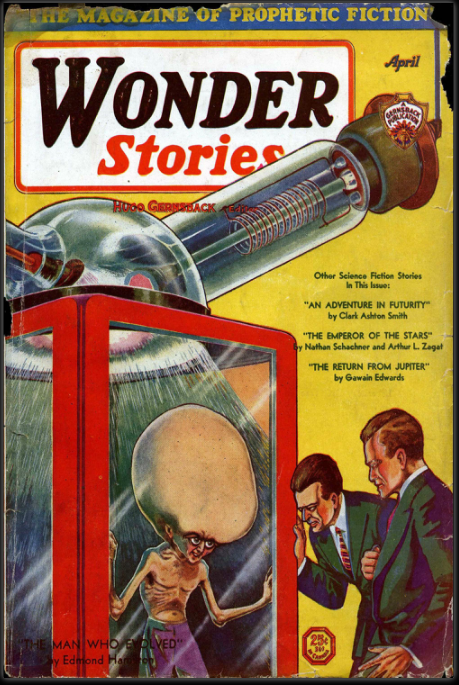

 I've been a bit behind on updating about Kirkus Reviews posts. I've published two in the last month, one about Orson Scott Card's Ender's Game and the other about Margaret Atwood.
I've been a bit behind on updating about Kirkus Reviews posts. I've published two in the last month, one about Orson Scott Card's Ender's Game and the other about Margaret Atwood. Ernie Cline's novel Armada dropped last week with an enormous publicity campaign that's sure to get this book selling exceptionally well. Cline has been riding high on his debut novel, Ready Player One, an Easter-egg infused novel that hit the nerd sweet spot with a hefty dose of references and nostalgia. The problem with Armada is that it's absolutely, fucking terrible.
Ernie Cline's novel Armada dropped last week with an enormous publicity campaign that's sure to get this book selling exceptionally well. Cline has been riding high on his debut novel, Ready Player One, an Easter-egg infused novel that hit the nerd sweet spot with a hefty dose of references and nostalgia. The problem with Armada is that it's absolutely, fucking terrible.
 I have a short post up this week at Kirkus Reviews. I've been looking at writing more about some of the women who wrote in the genre, and came across one, Clare Winger Harris, who seems to have been one of the earliest, at least under her own name. There's not much out there about her, but she proves to be a really interesting subject.
I have a short post up this week at Kirkus Reviews. I've been looking at writing more about some of the women who wrote in the genre, and came across one, Clare Winger Harris, who seems to have been one of the earliest, at least under her own name. There's not much out there about her, but she proves to be a really interesting subject.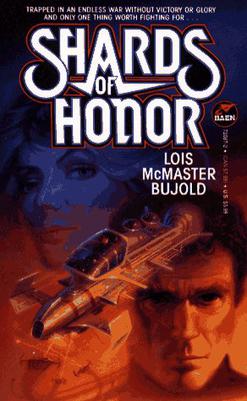 The idea of genre is a helpful and annoying one: people like to identify where things fit, particularly on bookshelves, but they don't want to be constrained by it. As we've seen over the course of this column, science fiction's character has vastly changed in the centuries of its existence, transforming and splitting into its own little factions over time.
The idea of genre is a helpful and annoying one: people like to identify where things fit, particularly on bookshelves, but they don't want to be constrained by it. As we've seen over the course of this column, science fiction's character has vastly changed in the centuries of its existence, transforming and splitting into its own little factions over time.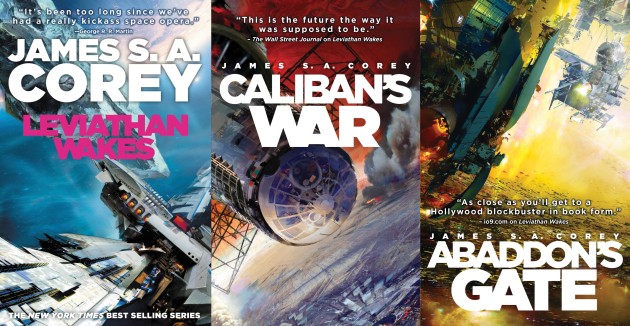 Over on Barnes and Noble's SciFi & Fantasy blog, I've got one of the biggest articles I've ever written: the Evolution of James S.A. Corey's series, The Expanse. This has been in the works for several months now, and it's really exciting to see it hit the light of day.
Over on Barnes and Noble's SciFi & Fantasy blog, I've got one of the biggest articles I've ever written: the Evolution of James S.A. Corey's series, The Expanse. This has been in the works for several months now, and it's really exciting to see it hit the light of day.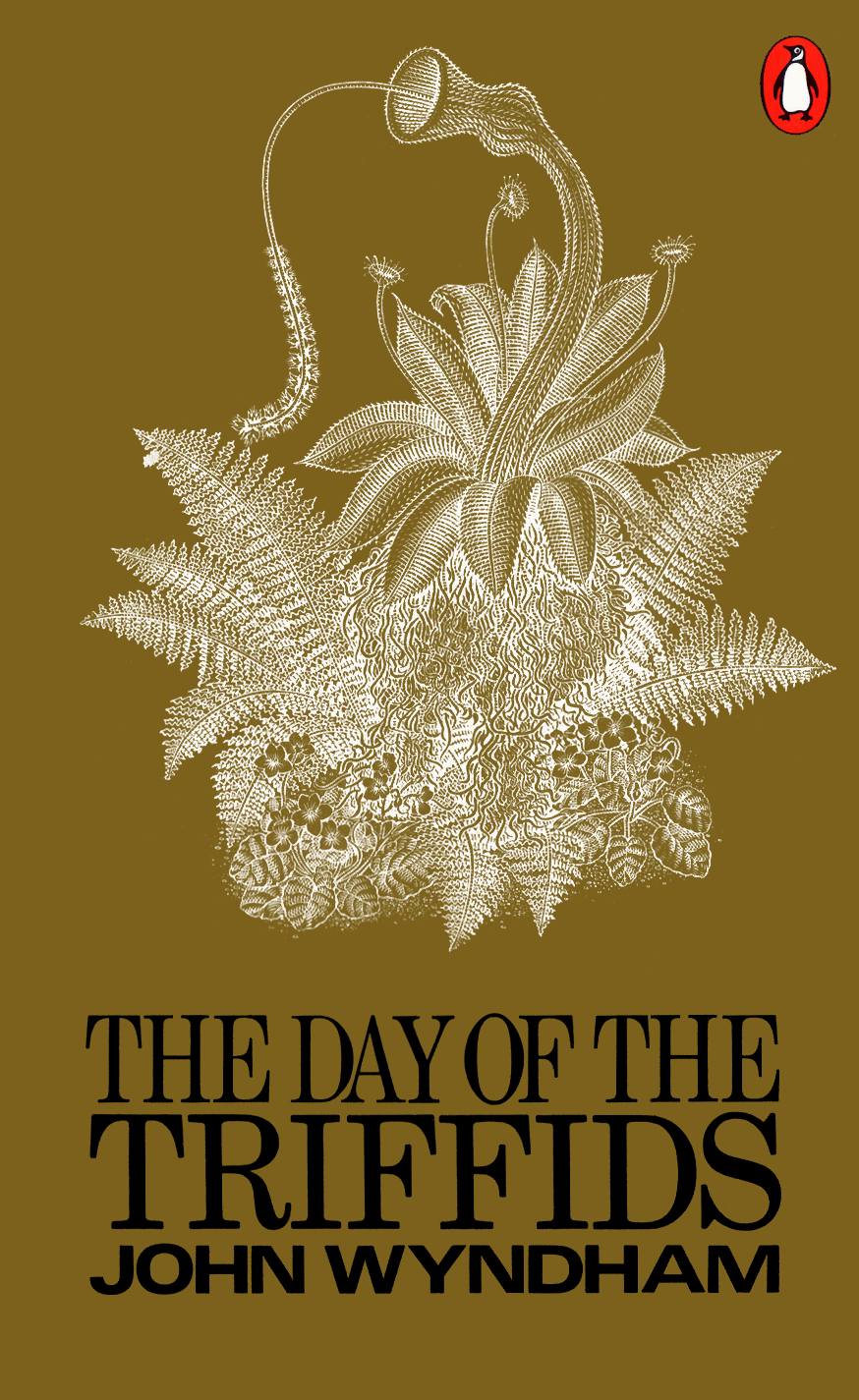 One of my favorite activities is to browse through used bookstores to see what turns up. I don't buy a lot of new science fiction novels anymore: It's worked out so that most of the books I want to read come to me for reviews (although I still buy my share of new books, usually from several of Vermont's fantastic indie bookstores), but there's something cool about an older paperback. One such recent purchase was a pair of John Wyndham novels, The Day of the Triffids and The Kraken Wakes. They're gorgeous Penguin editions with some outstanding cover art.
One of my favorite activities is to browse through used bookstores to see what turns up. I don't buy a lot of new science fiction novels anymore: It's worked out so that most of the books I want to read come to me for reviews (although I still buy my share of new books, usually from several of Vermont's fantastic indie bookstores), but there's something cool about an older paperback. One such recent purchase was a pair of John Wyndham novels, The Day of the Triffids and The Kraken Wakes. They're gorgeous Penguin editions with some outstanding cover art. So, I have a nonfiction piece up on
So, I have a nonfiction piece up on 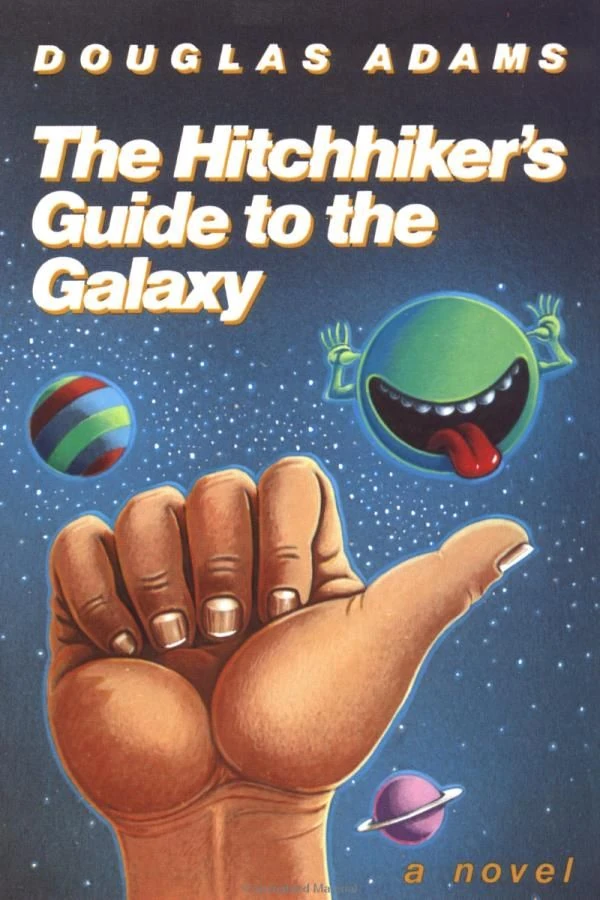 I remember the moment very clearly: I was with my friend Erica at a writer's conference in 2001, when we learned that Douglas Adams had passed away. It was the first time I was really struck that an author I enjoyed would no longer write something, and we both commiserated over the book that really really loved: Hitchhiker's Guide to the Galaxy.
I remember the moment very clearly: I was with my friend Erica at a writer's conference in 2001, when we learned that Douglas Adams had passed away. It was the first time I was really struck that an author I enjoyed would no longer write something, and we both commiserated over the book that really really loved: Hitchhiker's Guide to the Galaxy. For me, the best types of history books are the one that look at something that seems innocuous, but turns out to be a small part in a much larger story. Mary Pilon's history The Monopolists: Obsession, Fury, and the Scandal Behind the World's Favorite Board Game is one such book, and it's an excellent look at the history of the board game Monopoly and how its history is murkier than one would ever expect. The board game you likely played as a family has a long, fascinating and exciting story behind it, and a story that ties into tax philosophy and business practices from major game maker Parker Brothers.
For me, the best types of history books are the one that look at something that seems innocuous, but turns out to be a small part in a much larger story. Mary Pilon's history The Monopolists: Obsession, Fury, and the Scandal Behind the World's Favorite Board Game is one such book, and it's an excellent look at the history of the board game Monopoly and how its history is murkier than one would ever expect. The board game you likely played as a family has a long, fascinating and exciting story behind it, and a story that ties into tax philosophy and business practices from major game maker Parker Brothers.
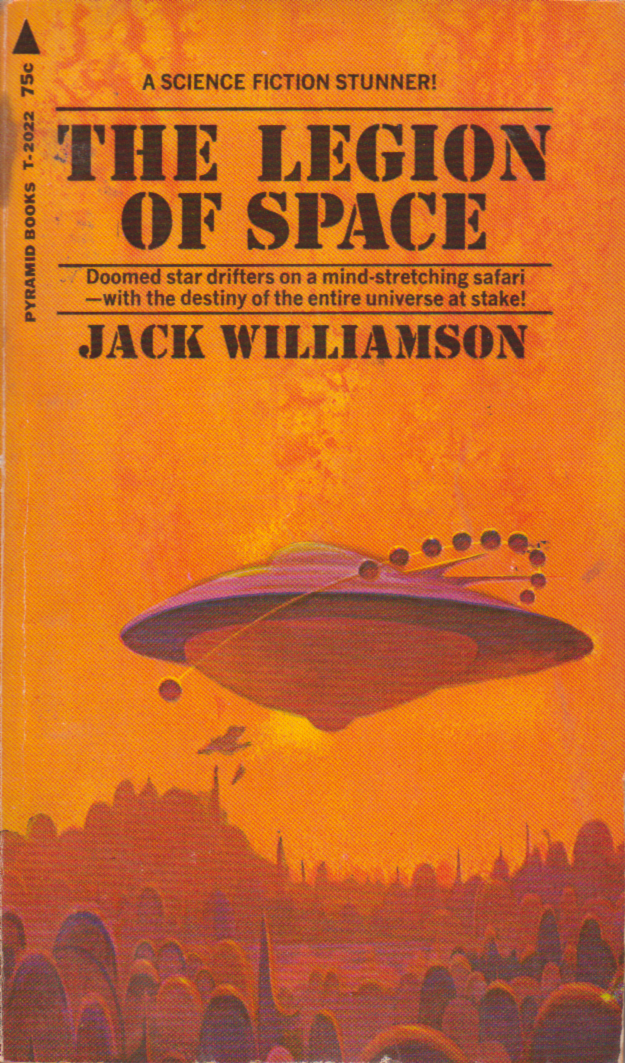 Space Opera is a genre near and dear to my heart, and as I've written for Kirkus Reviews, it's clear that space opera is one of the genres that's been a central focus of science fiction: the idea of travelling through space and visiting new worlds is a particularly interesting one. Space Opera has changed over time, and one of the authors responsible for setting up some modern styling of it is Jack Williamson, who enjoyed a particularly long career as an author.
Space Opera is a genre near and dear to my heart, and as I've written for Kirkus Reviews, it's clear that space opera is one of the genres that's been a central focus of science fiction: the idea of travelling through space and visiting new worlds is a particularly interesting one. Space Opera has changed over time, and one of the authors responsible for setting up some modern styling of it is Jack Williamson, who enjoyed a particularly long career as an author.